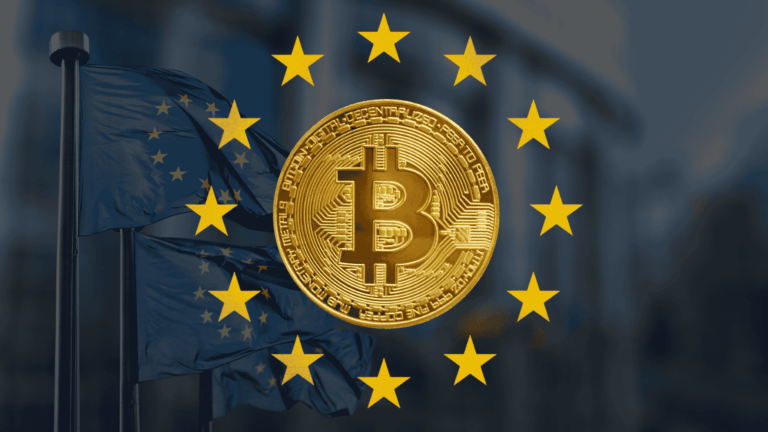
The MiCA regulation framework affecting CASPs (Crypto Asset Service Providers) became effective on December 30, 2024, shaping the future of crypto use in the European Union. The goal of this framework is to emphasize transparency, consumer protection, and crime prevention.
The adoption of crypto payments in the iGaming industry is constantly growing, making the MiCA regulation framework a significant point of impact on the European gambling ecosystem. But does this mean a negative impact? Not necessarily.
In countries where it is still not allowed to use crypto to gamble, licensed operators can innovate within these constraints, offering legal, crypto-based payment solutions to players in compliance with MiCA and local gambling regulations. This could lead to an influx of players who previously frequented unlicensed platforms, drawn by the new legal avenues to use crypto for gambling.

What is MiCA regulation and why does it matter?
The Markets in Crypto-Assets (MiCA) regulation provides a comprehensive framework for managing crypto-assets, their issuers, and service providers within the European Union. This regulation sets stringent standards for transparency, licensing, and operational conduct to protect consumers, maintain market integrity, and prevent financial crimes.
For iGaming, MiCA is particularly relevant. The regulation clarifies the legal status of crypto transactions, ensuring operators can integrate these into their platforms without falling foul of local laws. The new regulatory framework mandates strong customer verification processes and other safeguards, which are essential for operators to gain and maintain trust.
Compliance with MiCA not only mitigates legal risks and enhances the reputation of operators by aligning them with recognized safety and accountability standards, but it also taps into a significant business opportunity for licensed operators. MiCA offers a pathway for players to migrate from unlicensed to licensed platforms, potentially capturing a large segment of this market.
How does MiCA regulation impact iGaming and crypto casinos?
Although MiCA introduces stringent requirements such as robust Know Your Customer (KYC) protocols and enhanced transparency and security measures, it doesn’t complicate the process of accepting crypto payments beyond reach. Let’s delve into how MiCA shapes the sector, maintaining that iGaming industry regulations will continue to evolve alongside these changes.
Mandatory KYC and AML Compliance
The MiCA framework reinforces the already established KYC and AML protocols in the iGaming industry. These are not new concepts for regulated operators, but MiCA requires an enhanced level of compliance to ensure even greater transparency and security.
The introduction of stricter standards aligns with global financial regulatory trends, thus increasing consumer trust and industry credibility. This could mean the end of fully anonymous gambling in the EU, bringing more security to operators and players.
Licensing and Market Access
Under MiCA, the need for specific licensing for crypto service providers, including iGaming platforms, mirrors existing licensing requirements but with an added layer focusing on crypto transactions. Tools enabling crypto betting must secure a MiCA license under the framework. This single license allows them to operate across all EU member states, streamlining cross-border activities while ensuring they adhere to stringent oversight.
This aligns with the iGaming industry’s ongoing compliance with regulatory standards, extending them to encompass the growing use of cryptocurrencies, and ensuring legal operation within the EU.
Consumer Protection Measures
While consumer protection has always been a cornerstone of iGaming regulations, MiCA introduces more rigorous standards for transparency in transactions and clarity in terms and conditions. The regulation requires clear fee disclosures, ensures game fairness, and mandates platform solvency verification.
These updated requirements are designed to protect users explicitly in the context of crypto assets, enhancing safeguards against deceptive practices and promoting a safer gambling environment.
Expert Insight: Marina Villalonga on Crypto Gaming Opportunities
Marina Villalonga, partner at Asensi Abogados and legal partner of ElenPAY, provides critical insight into the evolving landscape of crypto gaming in the EU. She underscores the substantial untapped market potential: “The first thing we need to acknowledge is the business opportunity in crypto gaming. We estimate that the market for unlicensed crypto gaming is around 100 billion dollars.”
Villalonga also sheds light on why players in heavily regulated markets might opt for unlicensed platforms, suggesting that one of the reasons is that “they just can’t use their crypto to gamble in the country they live in.”
Drawing from examples like Malta, which offers a more flexible regulatory framework for gaming operators, Villalonga and her team at Asensi Abogados have conducted discussions with the Spanish gaming regulator, DGOJ, to highlight how the MiCA framework can be effectively applied to regulate crypto asset service providers, ensuring that Spanish regulations can accommodate and oversee crypto gaming.
This is just an example of how positive the regulatory changes brought by MiCA can be, opening new doors for licensed operators.
What this means for operators
MiCA regulation brings both specific opportunities and obligations affecting payment service providers, which in turn open doors for operators within the iGaming industry:
- Enhanced Credibility for Payment Providers: Compliance with MiCA can boost the credibility of payment service providers, showcasing their commitment to transparency and legal compliance. This, in turn, benefits operators by associating them with trustworthy and compliant payment platforms.
- Simplified Cross-Border Operations: While operators are not required to obtain the MiCA license, working with licensed payment providers enables them to access multiple EU markets more easily, simplifying expansions and operations across borders.
- Advanced Security Measures: Payment gateways like ElenPay will implement advanced security technologies and meet KYC and AML standards to comply with MiCA, enhancing the overall security framework within which operators function.
- Ensured Consumer Protection: While operators continue to ensure game fairness and provide clear fee disclosures, it’s the licensed payment providers that will handle crypto transactions, ensuring these transactions meet MiCA’s consumer protection standards.
- Market Expansion Opportunities: With payment providers meeting MiCA’s stringent requirements, operators can legally attract players from unlicensed platforms. This is because they can offer compliant, crypto-based payment solutions through these licensed gateways, opening up significant market expansion possibilities.
What this means for players
MiCA regulation also has significant implications for players using cryptocurrencies to operate in iGaming platforms:
- Greater Security and Transparency: Players can expect a higher standard of security and clearer operations from compliant platforms.
- Assurance of Fair Play: Enhanced measures ensure that games are fair and operators are solvent, increasing trust in the platforms.
- Need for Awareness: Players will need to be more aware of the terms and conditions related to crypto payments, as platforms increase transparency.
- Potential for More Stable Operations: As operators adhere to strict regulatory standards, the overall stability and reliability of online gambling platforms are likely to improve.
- Enhanced Access to New Markets: MiCA’s regulations can enable players from jurisdictions where crypto gambling was previously restricted or unclear to engage in iGaming activities legally.
How ElenPAY helps operators meet MiCA regulation
As a crypto payment service provider, ElenPAY is directly subject to MiCA regulations, which guide our operations and service offerings. Our compliance ensures that we provide a secure, transparent, and reliable service, supporting our clients’ business needs while adhering to the highest regulatory standards.
By working closely with regulatory bodies such as the DGOJ, the Bank of Spain, and the CNMV, we ensure our platform is not just compliant but also ahead of regulatory changes, adapting to the evolving landscape of crypto payments in the iGaming industry.
ElenPAY is strategically positioned to help iGaming operators innovate while navigating the complexities of MiCA regulation. Our platform offers a crypto payment service that enables operators to accept Bitcoin payments without directly handling cryptocurrency, thus remaining compliant with current MiCA’s requirements and iGaming industry-specific regulations.
Ready to accept Bitcoin payments within a compliant framework? Contact ElenPAY today to request a demo and see how we can help your iGaming business thrive under MiCA regulation.
Leave a Reply